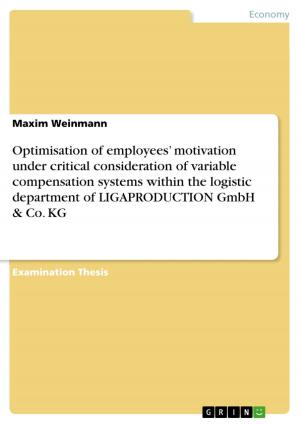The Industrial Revolution. Ready for Take Off
Why Did England Industrialise Before Anyone Else?
Nonfiction, Reference & Language, Study Aids, ESL, Foreign Languages| Author: | T. Schlipfinger | ISBN: | 9783656189930 |
| Publisher: | GRIN Verlag | Publication: | May 14, 2012 |
| Imprint: | GRIN Verlag | Language: | English |
| Author: | T. Schlipfinger |
| ISBN: | 9783656189930 |
| Publisher: | GRIN Verlag |
| Publication: | May 14, 2012 |
| Imprint: | GRIN Verlag |
| Language: | English |
Seminar paper from the year 2011 in the subject English Language and Literature Studies - Culture and Applied Geography, grade: 2, University of Innsbruck (Anglistik), course: British Culture, language: English, abstract: Without doubt, the Industrial Revolution is one of the most important events in human his-tory. For better or worse, it changed lives throughout England and soon afterwards contin-ued to do so also in Europe and the rest of the world. But already here lies one of the mys-teries of the Industrial Revolution. Why did it start in England (or at least, in parts of Eng-land)? What was so special about this island off the European continent's cost that made it possible for it to develop in the eighteenth and nineteenth century so much faster than any of its competitors (at least out of a technological point of view)? For there certainly were competitors - other countries like France or the Netherlands but also outside Europe, like China or Japan - that were in a similar position, but somehow failed to industrialise before England did. The aim of this paper is to look for an answer to this seemingly simple question.
Seminar paper from the year 2011 in the subject English Language and Literature Studies - Culture and Applied Geography, grade: 2, University of Innsbruck (Anglistik), course: British Culture, language: English, abstract: Without doubt, the Industrial Revolution is one of the most important events in human his-tory. For better or worse, it changed lives throughout England and soon afterwards contin-ued to do so also in Europe and the rest of the world. But already here lies one of the mys-teries of the Industrial Revolution. Why did it start in England (or at least, in parts of Eng-land)? What was so special about this island off the European continent's cost that made it possible for it to develop in the eighteenth and nineteenth century so much faster than any of its competitors (at least out of a technological point of view)? For there certainly were competitors - other countries like France or the Netherlands but also outside Europe, like China or Japan - that were in a similar position, but somehow failed to industrialise before England did. The aim of this paper is to look for an answer to this seemingly simple question.















